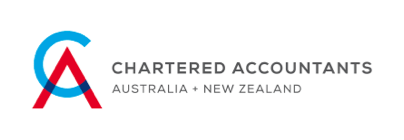An audit report is a critical document that provides an independent assessment of an organisation’s financial statements, ensuring accuracy, compliance, and transparency.
For Australian entities—from charities to real estate agencies and financial services businesses—understanding the components and implications of an audit report is essential for maintaining stakeholder trust and meeting regulatory obligations.
Here, Director of Allen Audit & Advisory, Richard Allen, explains each element of an audit report and what to expect from the process.
Key components of an audit report
Richard says each audit report starts with a title and introduction clearly stating it’s an independent auditor’s report and identifying the financial statements audited.
“The opening section focuses on the different responsibilities of the organisation’s management and the auditors involved,” he says.
“Organisation management are responsible for the preparation and fair presentation of the financial statements, making sure they’re in line with accounting standards and regulations.
“Then the auditor’s role is outlined, including the responsibility to conduct the audit to Australian Auditing Standards and to make sure—as best they can—that the financial statements are accurate.”
The auditor gives their opinion on whether the financial statements present a true and fair view of the organisation’s financial position and performance.
“They’ve also got to give the reasoning behind their opinion, including a full summary of the audit process and how it was conducted,” says Richard.
“The auditor also gets the opportunity to highlight any significant issues to help with understanding the financial statements, such as financial viability concerns or significant events.
“And comments may be offered on other information included with the financial statements, like annual reports, and the auditor’s responsibility regarding this information.”
Understanding the auditor’s opinion
The auditor’s opinion can be one of four options: unqualified (or ‘clean’), qualified, adverse, or a disclaimer.
“A clean opinion means the financial statements present a true and fair view in line with the applicable financial reporting framework. This is an ideal outcome for the organisation being audited,” says Richard.
“A qualified opinion is when there are exceptions to accounting principles or limitations in the audit’s scope, but the statements are still largely reliable.
“When an opinion is adverse, it indicates financial statements don’t present a true and fair view and the statements are unreliable.
“And if an auditor isn’t provided with enough financial documentation and information to conduct an audit properly, they can issue a disclaimer of opinion, stating they were unable to form an opinion on the financial statements.”
Regulatory requirements for specific Australian entities
Richard says various Australian entities require auditing, including charities, schools, sporting, cultural, and social clubs; trust account holders such as real estate agents, conveyancers, solicitors, accountants; and Australian Financial Services (AFS) licensees. Each have their own regulatory requirements for financial reporting.
“The Australian Charities and Not-for-profits Commission (ACNC) classifies charities based on their annual revenue, and auditing obligations are determined from there,” he says.
“The ACNC doesn’t require small charities to submit a financial report, but medium charities must have their financial reports reviewed or audited, and large charities need audited financial reports.
“Schools and clubs are required to lodge audited financial statements annually and hold annual general meetings within five months of the financial year’s end.
“Professionals such as real estate agents, conveyancers, solicitors, and accountants managing trust accounts face state-based regulations, which typically include annual audits to ensure proper handling of client funds.
“And Australian Financial Services Licensees need to prepare and lodge audited financial statements annually, to show compliance with financial requirements set by the Australian Securities and Investments Commission.”
Richard says understanding your audit report is important to keep financial transparency and compliance with these Australian regulations.
“By getting to know the components of an audit report, you can better prepare for audits and address any issues proactively,” he says.
“Engaging with qualified auditors who specialise in your industry can provide valuable insights and help maintain the integrity of your financial reporting.”
Contact Richard and the team at Allen Audit & Advisory to discuss your needs.








